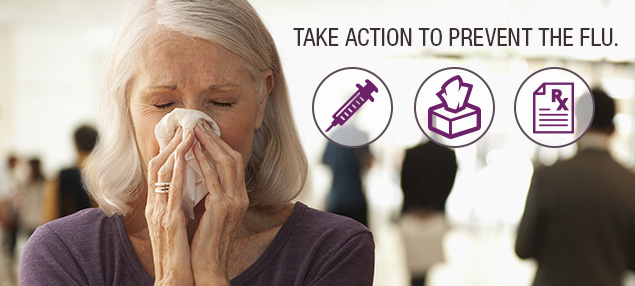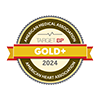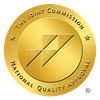
Healthy Habits to Help Prevent Flu
The single best way to prevent seasonal flu is to get vaccinated each year, but good health habits like covering your cough and washing your hands often can help stop the spread of germs and prevent respiratory illnesses like the flu. There also are flu antiviral drugs that can be used to treat and prevent flu. The tips and resources below from the Centers for Disease Control (CDC) will help you learn about steps you can take to protect yourself and others from flu and help stop the spread of germs.
Get Vaccinated
The seasonal flu vaccine protects against the influenza viruses that research indicates will be most common during the upcoming season. There are several flu vaccine options this flu season.
Avoid close contact.
Avoid close contact with people who are sick. When you are sick, keep your distance from others to protect them from getting sick too.
- Stay home when you are sick.
If possible, stay home from work, school, and errands when you are sick. This will help prevent spreading your illness to others.
- Cover your mouth and nose.
Cover your mouth and nose with a tissue when coughing or sneezing. It may prevent those around you from getting sick. Flu and other serious respiratory illnesses, like respiratory syncytial virus (RSV), whooping cough, and severe acute respiratory syndrome (SARS), are spread by cough, sneezing, or unclean hands.
- Clean your hands.
Washing your hands often will help protect you from germs. If soap and water are not available, use an alcohol-based hand rub.
- Handwashing: Clean Hands Save Lives
Tips on hand washing and using alcohol-based hand sanitizers - It’s a SNAP Toolkit: Handwashingexternal icon
Hand washing resources from the It’s A SNAP program, aimed at preventing school absenteeism by promoting clean hands. From the School Network for Absenteeism Prevention, a collaborative project of the CDC, the U.S. Department of Health and Human Services and the American Cleaning Institute.
- Avoid touching your eyes, nose or mouth.
Germs are often spread when a person touches something that is contaminated with germs and then touches his or her eyes, nose, or mouth. - Practice other good health habits.
Clean and disinfect frequently touched surfaces at home, work or school, especially when someone is ill. Get plenty of sleep, be physically active, manage your stress, drink plenty of fluids, and eat nutritious food.
At Work
- Find out about your employer’s plans if an outbreak of flu or another illness occurs and whether flu vaccinations are offered on-site.
- Routinely clean frequently touched objects and surfaces, including doorknobs, keyboards, and phones, to help remove germs.
- Make sure your workplace has an adequate supply of tissues, soap, paper towels, alcohol-based hand rubs, and disposable wipes.
- Train others on how to do your job so they can cover for you in case you or a family member gets sick and you have to stay home.
- If you begin to feel sick while at work, go home as soon as possible.











